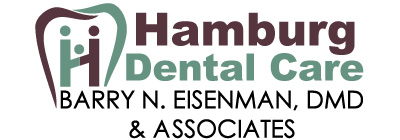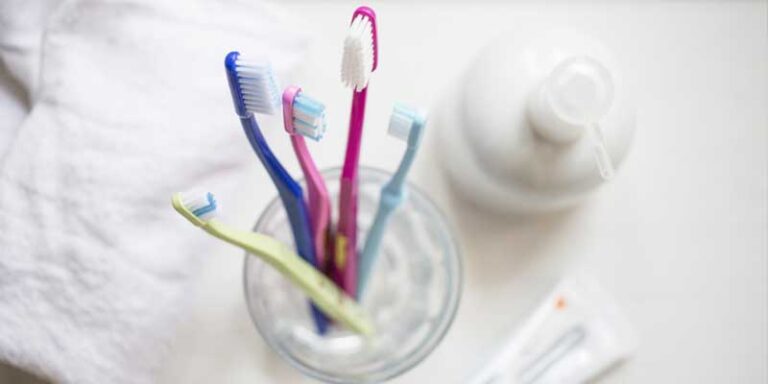We’ve included these easy tips for you to take control of your oral care routine for a healthier you. Read through our complete oral care guide and your smile will thank you later.
Maintaining good oral hygiene is one of the easiest steps to a healthier body. It reduces your risk of developing cavities, gum disease, and tooth decay.
But did you know good oral hygiene can also reduce your risk of serious diseases and improves your overall health? If you’re thinking you need to add more steps in your oral care, you’re not alone.
First Comes Flossing
Flossing removes tiny food particles lodged between teeth that brushing can’t remove. A few particles of food between teeth increase bacteria, enamel erosion, and cavities. Dentists recommend flossing in the morning and before going to bed.
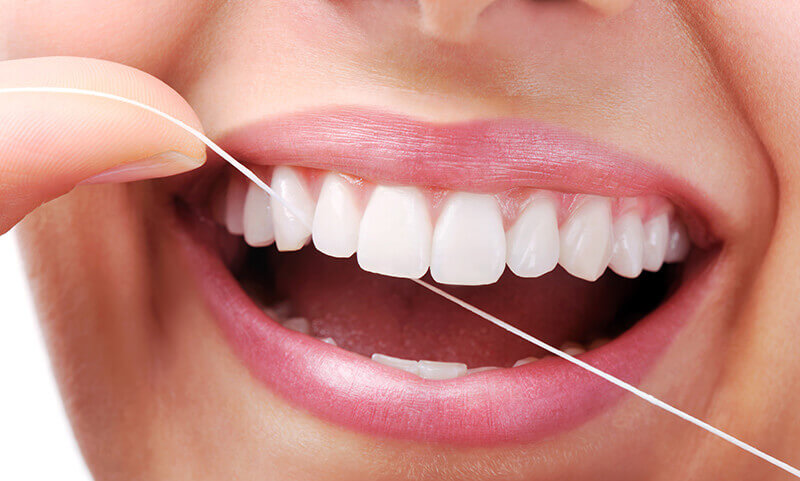
Hold a piece of floss with both hands and gently insert the floss between teeth. Curve the floss into the shape of a “C” against one edge of a tooth and move the floss back and forth four or five times.
When you have finished flossing all teeth, throw the dental floss away. Used floss harbors bacteria that cannot be washed off.
Brush your Tongue
Every notice that white coating on your tongue when you wake up? That’s the result of bacteria accumulating on your tongue while you slept.
“Anaerobic” bacteria thrive in airless, dark places, consuming mouth debris and reproducing rapidly. Having bad breath in the morning is the result of bacteria giving off foul-smelling gases.
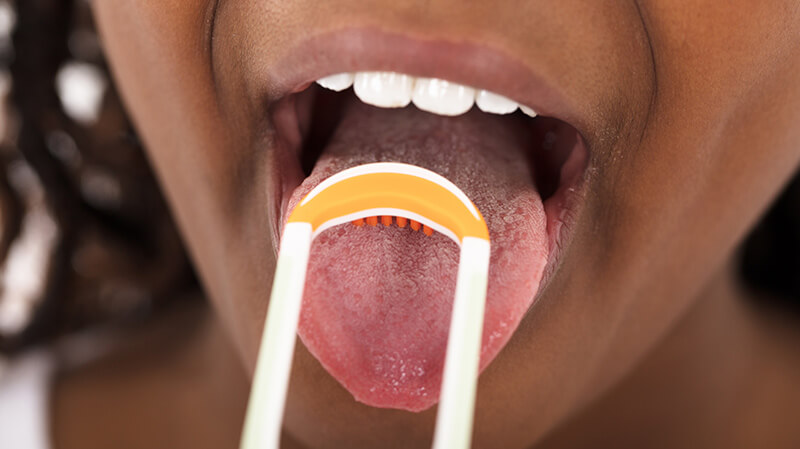
Always brush or scrape your tongue with an oral tongue scraper in the morning to remove bacteria. Tongue scrapers are specially shaped to help the removal of tongue bacteria.
Optimal Mouthwashes
Avoid using mouthwashes that contain alcohol. Alcohol can dry out oral tissues and promote dental diseases. Instead, use mouthwashes containing fluoride, cetylpyridinium chloride, and chlorhexidine. Cetylpyridinium chloride kills bacteria and chlorohexidine maintains gum health by reducing plaque.
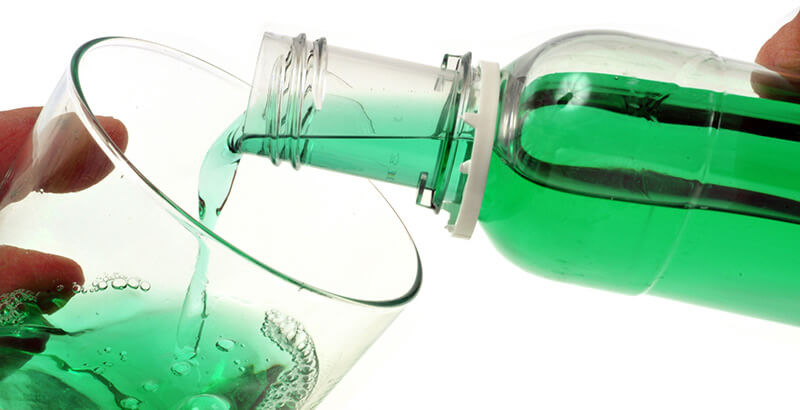
Bacteria flourish in the airless conditions in the back of your throat and around the tonsil areas. So, don’t skip the gargling next time. You can even swap out mouthwash for essential oils. The antibacterial properties of oil are great for your teeth.
Oral Irrigators
Oral irrigators include water flossers and Waterpiks. Both remove debris from teeth and at the gum line with a stream of high-pressured water and/or air. Oral irrigators are beneficial for people who can’t floss or wear orthodontic appliances.
Finding the Right Toothbrush
Avoid using hard-bristled toothbrushes. Many people think hard-bristled brushes clean your teeth better. However, they only irritate gums further.
Replace your toothbrush every three months. If you notice frayed or missing bristles do it sooner. Dentists recommend tossing out your old toothbrush after a cold or virus. This avoids transferring germs from the old toothbrush back into your mouth.
Remineralizing Toothpaste
Did you know that our tooth enamel cannot be replaced once lost? Don’t worry, our existing enamel can increase using the right toothpaste.

Remineralizing toothpaste contains stannous fluoride, sodium fluoride, and calcium phosphate. These ingredients make your teeth stronger and less sensitive to hot and cold. They also protect teeth from bacterial erosion and strengthens enamel to prevent cavities.
Tip: When choosing products, look for the ADA seal (The American Dentist Association). The seal means the product has met requirements for safety and effectiveness.
Saliva & Oxygen Levels
You may know how important saliva and oxygen are for your health. But did you know both are essential for oral hygiene as well?
Oxygen kills anaerobic bacteria that live in the mouth. Every time you inhale bacteria die. Saliva removes food particles from teeth and protects oral tissues from drying out.
Try adding a fluoridated mouthwash to your daily routine. Fluoride promotes healthy levels of oxygen and saliva in the mouth.
Visit your Dentist
Visiting your dentist for cleanings ensures your teeth stay healthy, strong, and cavity-free. Dentists inspect your teeth for signs of decay and your gums for gingivitis.
Most cavities are preceded by “pitting” of the enamel. Treating enamel pitting early prevents the need for future fillings, extractions, or root canals. Regular teeth cleanings from your dentist provide huge advantages to your oral and overall health.
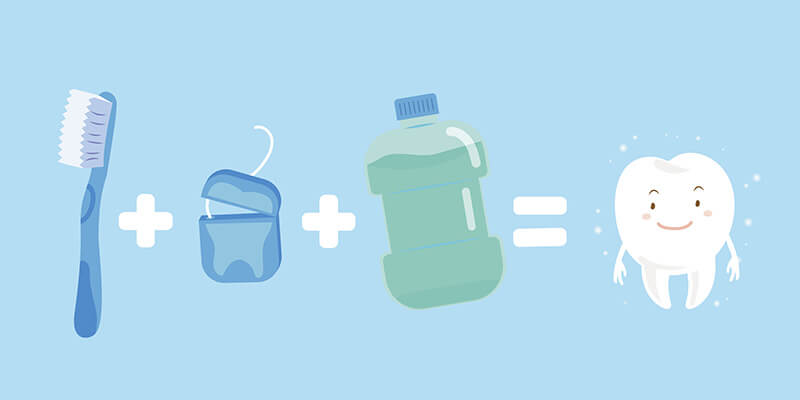
Hamburg Dental Care provides orthodontics, endodontics, pediatric dentistry, and other dental services. Visit us for all your family and cosmetic dentistry needs. Call today to schedule an appointment or to learn more about our many services.
